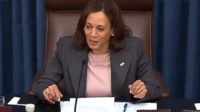In a ruling that observers say adds new clarity to how judges and the Internal Revenue Service see company bids for federal research-and-development tax credits based on perceived contract risk in doing research, an Atlanta federal appellate court on Jan. 29 backed the government's claim that one firm's work was all client-funded and didn’t qualify for a refund.
The ruling by the 11th U.S. Circuit Court of Appeals against Atlanta-based Geosyntec Consultants affirms a similar position by a Florida lower court, which last year decided the firm's research already was covered by clients and rejected its bid for close to $1.7 million in federal tax credits to cover claims of financial risk on several cost-plus contracts.
While both courts agreed that Geosyntec's work under several fixed-price contracts was eligible for the tax credits, they supported the IRS in rejecting tax credits for research under the two "capped" cost-plus contracts that were reviewed.
Geosyntec ranks at No. 60 on ENR's Top 500 Design Firms list, with about $220.7 million in 2013 revenue.
"Geosyntec was not paid on delivery and acceptance of those items and was not required to deliver results that met contract specifications prior to payment," said the appellate court, adding, "Any risk of nonpayment borne by Geosyntec was unrelated to the outcome of its research."
The judges said the firm was entitled to payment under both contracts "regardless of success," so it "did not bear the financial risk of its own failure."
The judges also found "unpersuasive" Geosyntec's argument that the two capped contracts provide for "strong client rejection rights" and that the company would be paid only "for work delivered to and accepted" by the two clients involved: the Delaware Sewer and Water Authority and Waste Management Inc.
"We are obviously disappointed," Geosyntec Chief Financial Officer Jon Dickinson told ENR. "We appealed the district court’s ruling because Geosyntec believes that the terms of the two capped contracts at issue placed the financial risk of research failures upon us. The [appeals court] interpreted the contracts to place that risk on the customers." He adds, "We disagree with, but respect, the court’s interpretation of the contracts and are considering the implications of the opinion."
However, Dickinson notes that "the one positive" is that the rulings "provide clarity for firms like Geosyntec on how best to pursue R&D tax credits and, more broadly, whether it is cost-effective to pursue them at all."
Star Fischer, a partner in the research-tax-credit practice at Seattle accounting consultant Moss Adams, notes key criteria that firms should consider when taking on R&D work and seeking tax-credit eligibility.
"If your customer can withhold payment at a research milestone, if the milestone has not been completed to satisfaction or if your company is obligated to fix problems during a warranty period at its own expense, the research is likely considered non-funded research, and it may be eligible for R&D tax credits," she says. "If the contract is cost-based but capped, your company won’t likely be eligible unless you can show there is a warranty or other indicator of financial risk."





Post a comment to this article
Report Abusive Comment